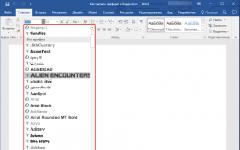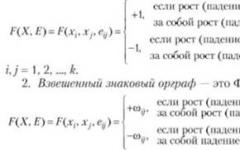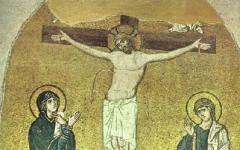Первым серьёзным открытием, которое создало ему славу, было открытие так называемого усиливающего нерва сердца. До И. П. Павлова было известно, что сердце регулируется в своей работе блуждающим нервом. Этот факт особенно подробно был исследован братьями Вебер, с именами которых и связано открытие тормозящего действия блуждающего нерва на сердце. Экспериментируя на собаках, И. П. Павлов обратил внимание, что при раздражении некоторых симпатических нервов сердце начинает сокращаться более сильно, не изменяя, однако, при этом ритма своих сокращений. Получилось исключительное усиливающее действие. Замечательным было также то, что уже остановившееся сердце могло быть вновь приведено в действие, если раздражать этот нерв. Это явление особенно отчётливо выступало в тех случаях, когда сердце останавливалось под влиянием каких-либо фармакологических средств, как, например, под влиянием ландышевых капель. Это открытие усиливающего нерва послужило исходным толчком для целого ряда работ, которые впоследствии создали научное направление под именем учения о нервной трофике (разрабатываемого ныне акад. Сперанским). Впоследствии этот нерв получил название "нерва Павлова". Весь этот цикл работ И. П. Павлова, посвящённый иннервации сердца, был оформлен в виде его докторской диссертации под названием "Центробежные нервы сердца", за которую он в 1883 г. получил звание доктора медицины.
Описание презентации по отдельным слайдам:
1 слайд
Описание слайда:
2
слайд

Описание слайда:
Date of birth: 26 September 1849 Place of birth: Ryazan, Russian Empire Date of death: 27 February 1936 (age 86) Place of death: Leningrad, RSFSR, USSR Country: Russian Empire → the USSR Scientific domain: Physiology Alma mater: Saint Petersburg state University Notable students: Orbeli, L. A., Bykov K. M., Kupalov, P. S., Anokhin, P. K., Babkin, B. P., N. N. The quality Known as: Creator of the science of higher nervous activity and views about the regulation processes of digestion; the founder of the largest Russian physiological school Awards and prizes: the Nobel prize in physiology or medicine (1904)
3
слайд

Описание слайда:
Ivan Petrovich was born on 14 (26) September 1849 in Ryazan. Pavlov"s ancestors in the paternal and maternal lines were servants of the Church. Father Peter Dmitrievich Pavlov (1823-1899), his mother, Varvara Ivanovna (née assumption) (1826-1890). In 1864 graduated from the Ryazan theological school, Pavlov entered the Ryazan theological Seminary. In my last year of Seminary he read the book "Reflexes of the brain" Professor I. M. Sechenov, who had turned his life
4
слайд

Описание слайда:
In 1870 he entered the law faculty (the seminarians were limited in the choice of University majors), but 17 days after admission went on natural branch of physical-mathematical faculty of St. Petersburg University (specializing in physiology)
5
слайд

Описание слайда:
Pavlov, Sechenov as a follower, doing a lot of nervous regulation. Sechenov had to move from St. Petersburg to Odessa, where he worked for some time at the University. His pulpit in the Medico-surgical Academy took Ilya Fadeevich Zion, and Pavlov took over the operational Zion virtuoso technique. Pavlov over 10 years has worked to get a fistula (hole) in the gastrointestinal tract. To make such an operation was extremely difficult, as slivovica from intestinal juice is digested intestine and the abdominal wall. I. P. So Pavlov had stitched the skin and mucosa, inserted the metal tube and was closed with their stoppers, no erosion was not, and he could get pure digestive juices throughout the gastro-intestinal tract from the salivary glands to the colon, which was done them on hundreds of experimental animals.
6
слайд

Описание слайда:
Conducted experiments with sham feeding (cutting of the esophagus so that food does not fall into the stomach), thus making a number of discoveries in the area of reflexes of the gastric juice. At 10 years old Pavlov, in essence, re-created modern physiology of digestion
7
слайд

Описание слайда:
In 1903, 54-year-old Pavlov made a report at the XIV International Medical Congress in Madrid. And in the next, in 1904, the Nobel prize for the study of the functions of the main digestive glands was awarded I. P. Pavlov, he became the first Russian Nobel prize winner
8
слайд

Описание слайда:
In the Madrid report, made in Russian, I. P. Pavlov first formulated the principles of physiology of higher nervous activity, which he spent the next 35 years of his life. Concepts such as reinforcement, unconditioned and conditioned reflexes, were the main concepts of the science of behavior
9
слайд

Описание слайда:
In 1919-1920, during the period of devastation, Pavlov, suffering poverty, lack of research funding, refused the invitation of the Swedish Academy of Sciences to move to Sweden, where he promised to create the most favorable conditions for life and scientific research, and in the vicinity of Stockholm was planned to build at the request of Pavlov the Institute, what he wants. Pavlov said that he"s not going anywhere. Then followed by the corresponding decree of the Soviet government, and built a magnificent Pavlov Institute in Koltushi, near Leningrad, where he worked until 1936
10
слайд

Описание слайда:
The stages of life 1875 Pavlov enters the 3rd course in Medical-surgical Academy (now medical Military Academy), at the same time (1876-78) in works at the lab with K. N. Ustimovich; at the end of the military medical Academy (1879) was left as the head of the physiological laboratory at the clinic of S. P. Botkin. In 1883, Pavlov defended his doctoral dissertation "the centrifugal nerves of the heart." 1884-86 - he was sent to further his knowledge abroad in Breslau and Leipzig, where he worked in the laboratories at R. HEIDENHAIN and K. Ludwig
11
слайд

Описание слайда:
1890 - elected Professor and head of the Department of pharmacology of the military medical Academy, and in 1896 was Chairman of physiology Department, which he headed until 1924. At the same time (1890) Pavlov - head of the physiological laboratory at the then organized the Institute of experimental medicine. 1901 - Pavlov was elected a corresponding member, and in 1907 a full member of the Petersburg Academy of Sciences.
Павлов.И.П. (14 сентября февраля 1936) один из авторитетнейших учёных России, физиолог, психолог, создатель науки о высшей нервной деятельности и представлений о процессах регуляции пищеварения; основатель крупнейшей российской физиологической школы; лауреат Нобелевской премии в области медицины и физиологии 1904 года «за работу по физиологии пищеварения».

Иван Петрович родился 14 сентября 1849 года в городе Рязани. Родители Павлова по отцовской и материнской линиям были служителями церкви. Отец Пётр Дмитриевич Павлов (), мать Варвара Ивановна (Успенская) ().С детства увлекалась физиологией животных.

Но через 17 дней после поступления перешёл на естественное отделение физико-математического факультета Петербургского университета (специализировался по физиологии) В 1870 поступил на юридический факультет (семинаристы были ограничены в выборе университетских специальностей)

В Мадридском докладе, сделанном на русском языке, И. П. Павлов впервые сформулировал принципы физиологии высшей нервной деятельности, которой он и посвятил последующие 35 лет своей жизни. Такие понятия как подкрепление, безусловный и условный рефлексы, стали основными понятиями науки о поведении
ИЗВЕСТНЫЙ ОТЕЧЕСТВЕННЫЙ ФИЗИОЛОГ ПАВЛОВ НЕСКОЛЬКО УСОВЕРШЕНСТВОВАЛ ОПЫТ. ОН СДЕЛАЛ ПРОРЕЗ В ПИЩЕВОДЕ СОБАКИ, А ЗАТЕМ ВЫВЕЛ КОНЦЫ ПОЛУЧИВШИХСЯ ОТРЕЗКОВ ПИЩЕВОДА НАРУЖУ. ВСЛЕДСТВИЕ ЭТОГО КОРМ ПЕРЕСТАЛ ПОСТУПАТЬ ИЗ РОТОВОЙ ПОЛОСТИ ПСА ДАЛЕЕ ПО ЖЕЛУДОЧНО- КИШЕЧНОМУ ТРАКТУ. ВЫЯСНИЛОСЬ, ЧТО ДАЖЕ ПРИ ДАННЫХ УСЛОВИЯХ ЖЕЛУДОК ВЫДЕЛЯЕТ СОК. СОКООТДЕЛЕНИЕ – ЗАКОНОМЕРНЫЙ РЕЗУЛЬТАТ РАЗДРАЖЕНИЯ РЕЦЕПТОРОВ ЯЗЫКА И СЛИЗИСТОЙ ОБОЛОЧКИ РТА. СИГНАЛЫ ОТ РЕЦЕПТОРОВ НАПРАВЛЯЮТСЯ В ПРОДОЛГОВАТЫЙ МОЗГ, А ЗАТЕМ, ПО НЕРВАМ, К ЖЕЛУДОЧНЫМ ЖЕЛЕЗАМ. БЫЛО ОБНАРУЖЕНО, ЧТО ЖЕЛЕЗЫ НАЧИНАЮТ АКТИВНО ФУНКЦИОНИРОВАТЬ УЖЕ ТОГДА, КОГДА СОБАКАПОЧУВСТВУЕТ ЗАПАХ УГОЩЕНИЯ И УВИДИТ МИСКУ. ПРИ ЭТОМ У ЖИВОТНОГО ИНТЕНСИВНО ВЫДЕЛЯЕТСЯ СЛЮНА.


Чтобы пользоваться предварительным просмотром презентаций создайте себе аккаунт (учетную запись) Google и войдите в него: https://accounts.google.com
Подписи к слайдам:
I. P. Pavlov – Man and Scientist.
Ivan Petrovich Pavlov was born on September 14, 1849 in Ryazan. When he was still a very little boy he helped his father on his farm. His father taught him to read books. In 1870 Pavlov entered Petersburg University to study natural sciences. Soon he decided to become a physiologist himself. During his work at the Academy Pavlov discovered several new facts about the blood pressure.
In 1881 Pavlov married. His wife was a wonderful helper and companion to him. Their marriage was a very happy one. In 1890 Pavlov began to lecture on physiology in the Military Academy. Many of Pavlov’s ideas were new to the students and he was a very popular lecturer. His lectures were very simple and clear. He did not use notes since his memory was wonderful. He allowed students to interrupt him and gladly answered their questions.
Pavlov studied the work of the digestive system. He made many experiments on dogs. He had to make operations on dogs and as he loved animals he treated his dogs with great kindness and they showed no fear of him. Pavlov never operated unless it was really necessary and he always used anaesthetics . He was a very skilful surgeon and the dogs generally recovered very quickly.
Pavlov made great contribution to medical science. After the Great October Revolution Pavlov was given a splendid new laboratory at the village of Koltushy . Large sums of money were spent on him laboratory. Though he was an old man of seventy four he worked as hard as ever. He rose at 7 o’clock each morning, ate a simple breakfast of tea and bread- and- butter usually to the accompaniment of the gramophone. He worked nine or ten hours a day.
A few years before his death he addressed the youth of our country: « The first important thing is to be systematic in your work . Never pass on to the next stage until you have finished the previous one. Never try to hide the defects in your knowledge. The second important thing is modesty. Never imagine that you know everything. The third thing that is necessary is enthusiasm. Remember that science demands of a man his whole life… »
Pavlov, the great Russian scientist, died on February 27, 1936 at the age of eighty-six.









